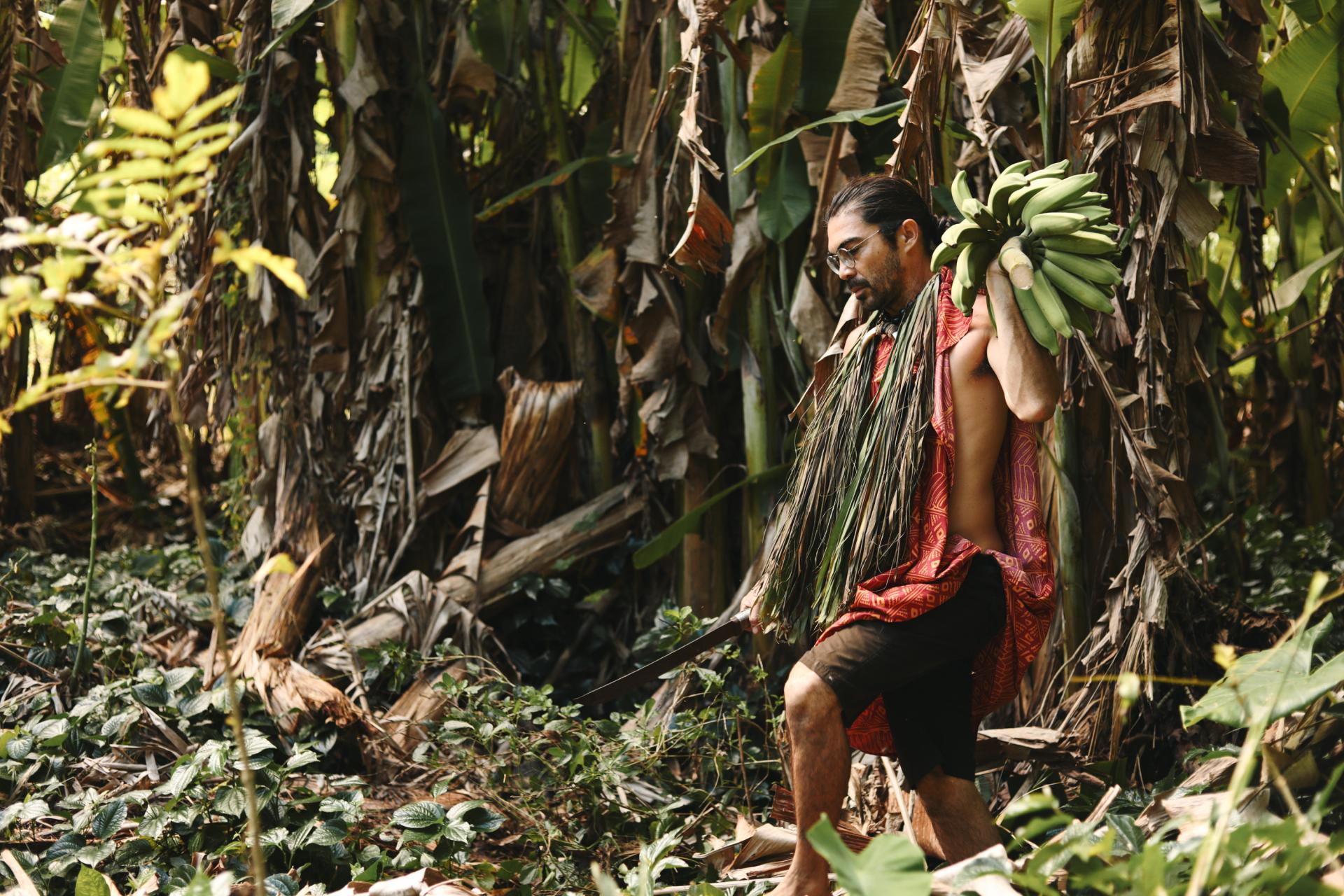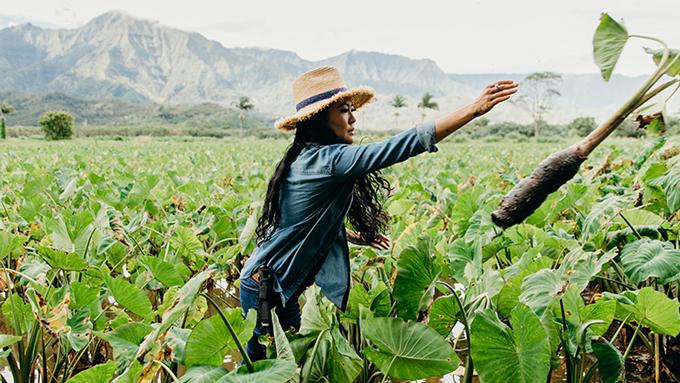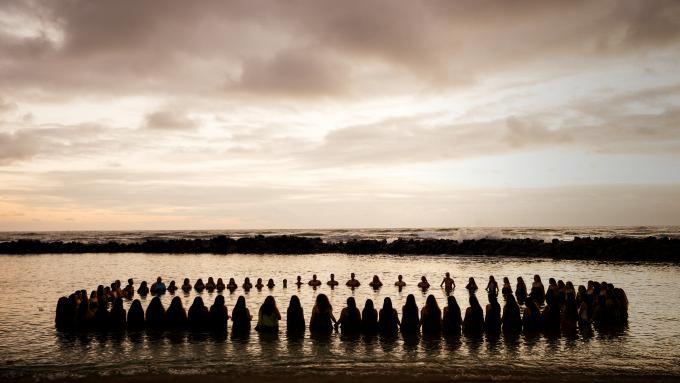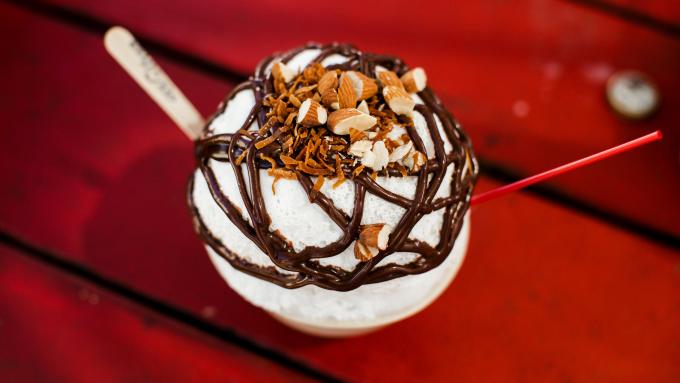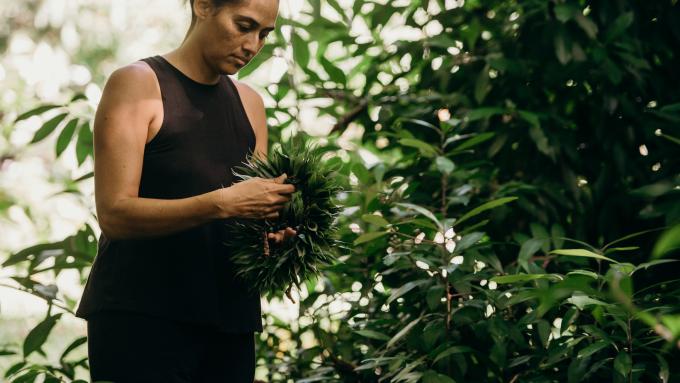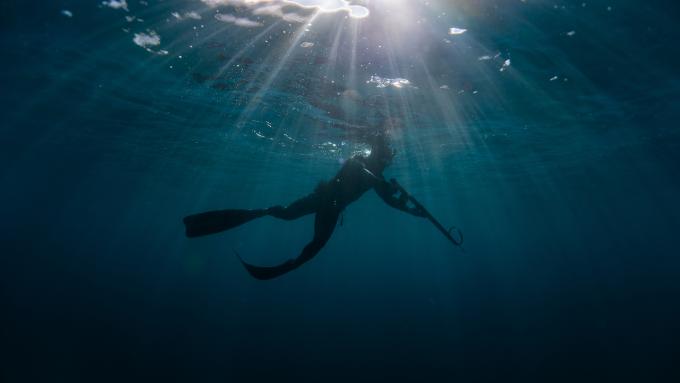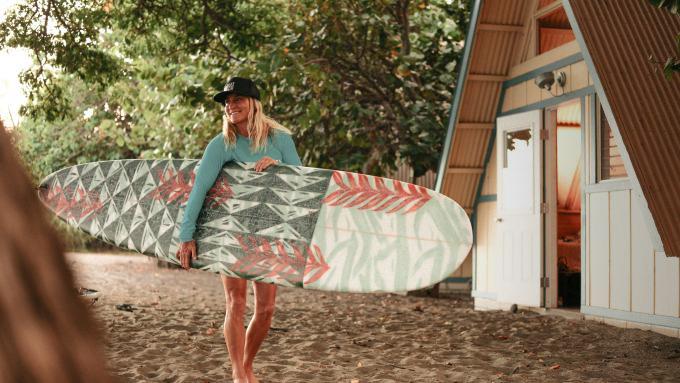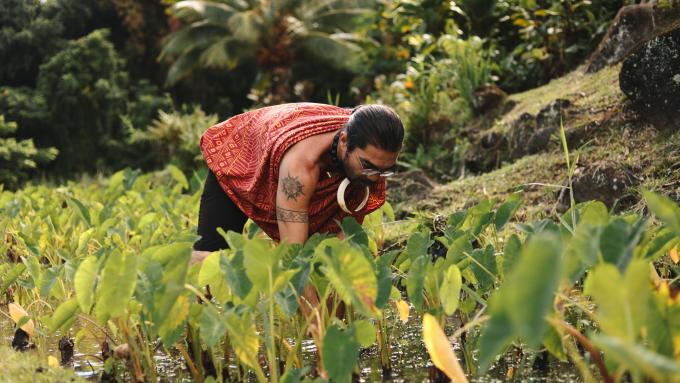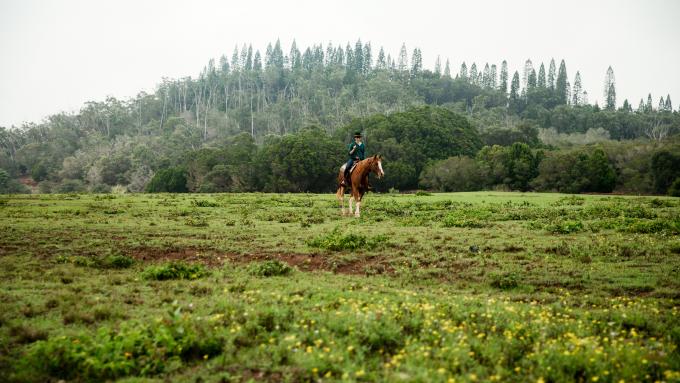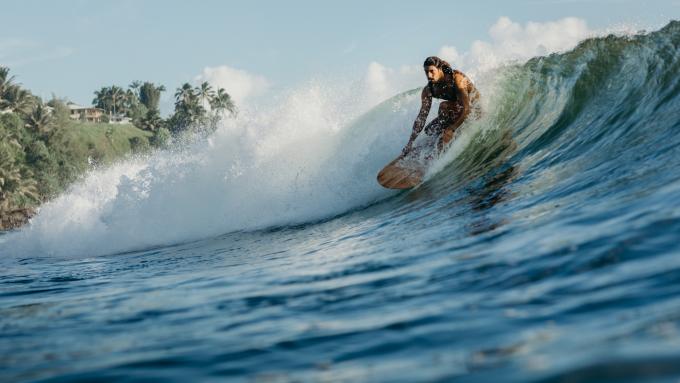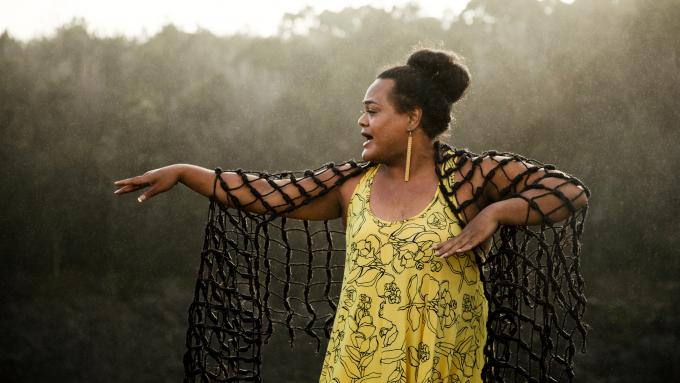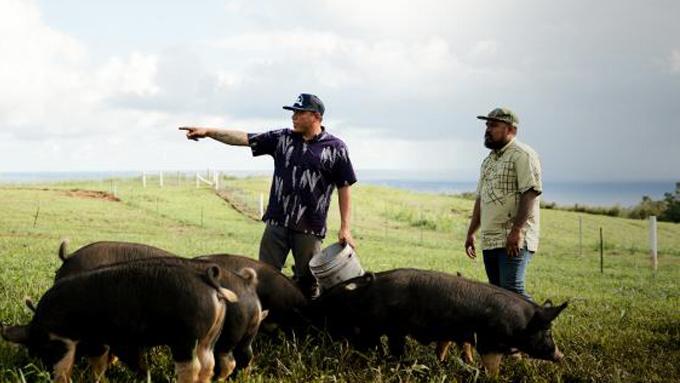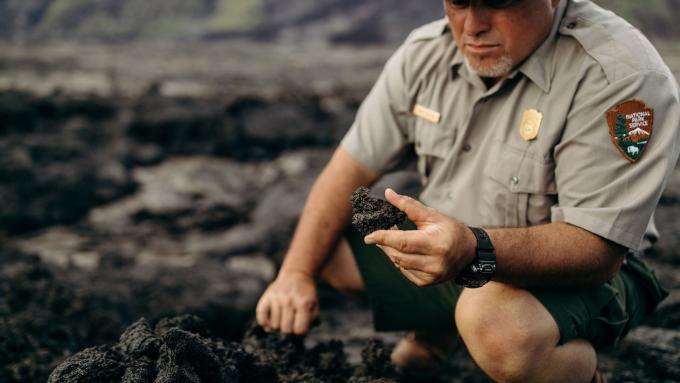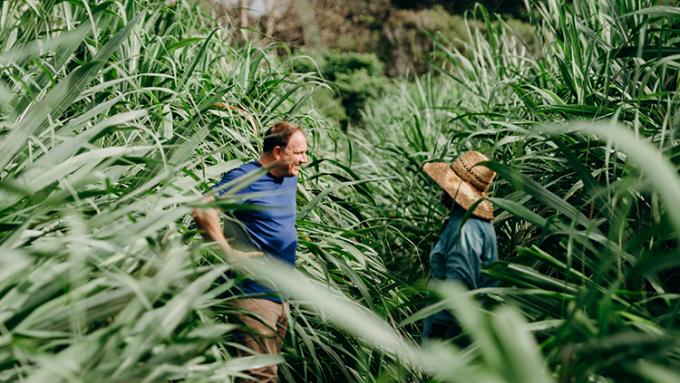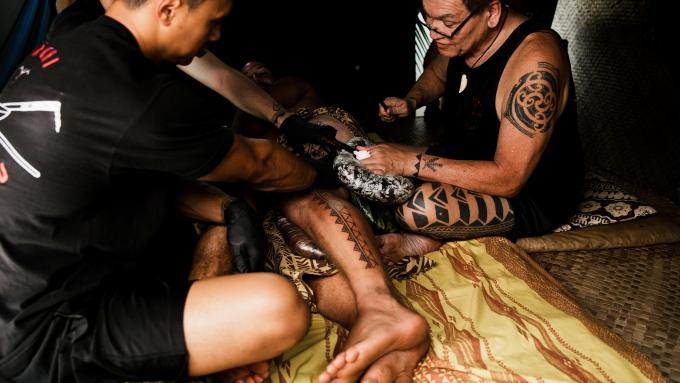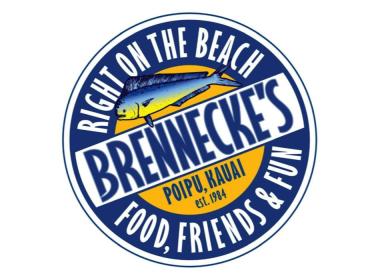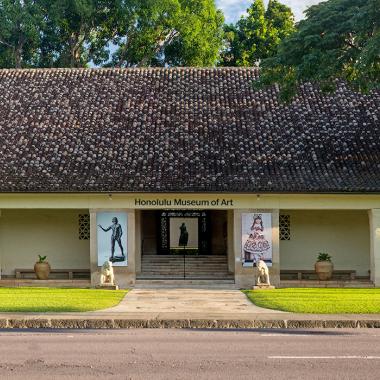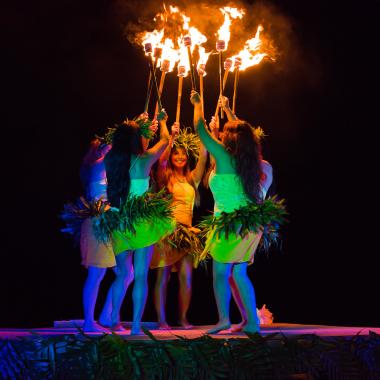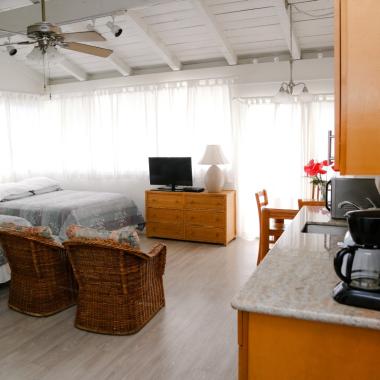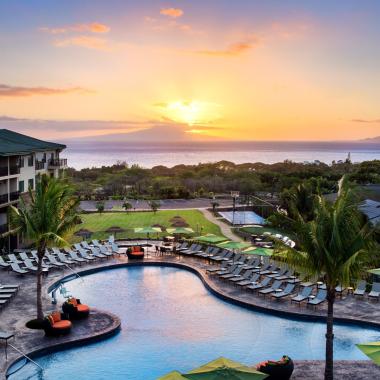Greg Solatorio
Greg is a cultural practitioner who lives off the land in Molokaʻi. This island is truly unique in Hawaiʻi because it has no fancy resorts, restaurants and golf courses. It is for the most part, frozen in time. And no other place in Molokaʻi exemplifies that more than Hālawa Valley. The Solatorios are the last original family left in the valley. Greg’s father was the last elder, born and raised here. Their lineage connects them back to the first Hawaiian settlers on Molokaʻi. Today, through the Hawaiian Homes Commission Act, this entire valley — from the peaks to the ocean — still belongs to the Solatorios.
Hālawa means “sufficient breath” or “sufficient life.” Here, the nearest store to get supplies is 29 miles away on a one-lane, windy road. In Hālawa Valley, if you don’t catch your own food, you don't eat. That’s how it goes. Luckily, this valley is rich with bountiful fruit, fish and vegetation. It supported a village for more than a thousand years and it supports the Solatorios today. Recently, the responsibility of carrying on his family’s traditions and culture has been passed on to Greg. And there’s no other place he’d rather be.
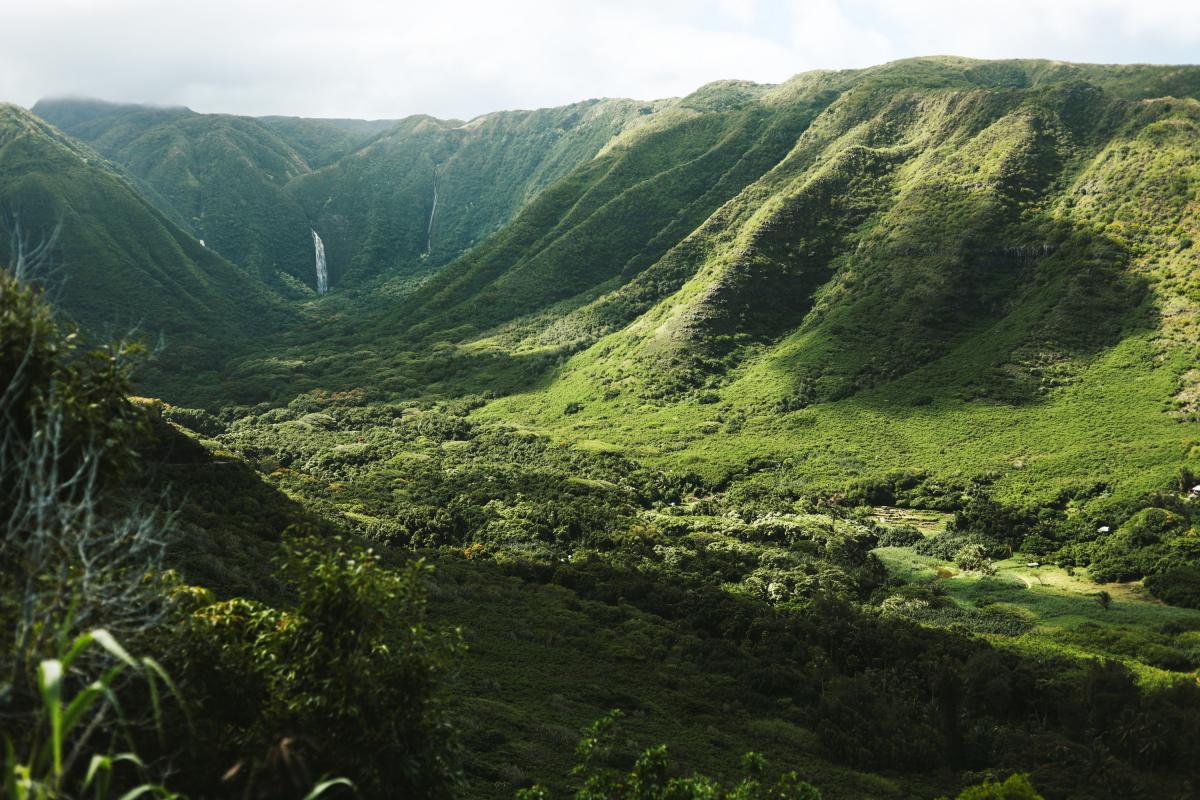
“Culture is not secret, it is sacred.”
You lived away from Molokaʻi and traveled the world. What brought you back?
This is just something I always wanted to do, this is my passion. And one of my biggest role models is my father. He is my hero. He is a cultural practitioner, a kumu, a teacher, to many people. And the example that I saw him set, made me want to be what I am now.
What does it feel like to live off the land?
Well, I don't know if you’ve ever grown your own garden, or harvested your own deer, or caught your own fish, but the satisfaction you get from knowing the hard work that you put into these things, to reap the benefit of these things – and to know that I'm taking care of my family, feeding my brother, feeding my sister, feeding myself – is incredible. You actually get a peace in yourself, where you actually feel connected, and you start to feel whole.
You operate Hālawa Valley Falls Cultural Hike. Why is it important to share your way of life?
Our culture, our family, our traditions, and our ways here in this valley – this is my expertise. I was always taught from my elders, especially my father, that culture is not secret, it is sacred. And that is what a lot of us need to understand, especially us cultural practitioners, culture needs to be shared. The minute we don't share culture, that's the minute our culture dies.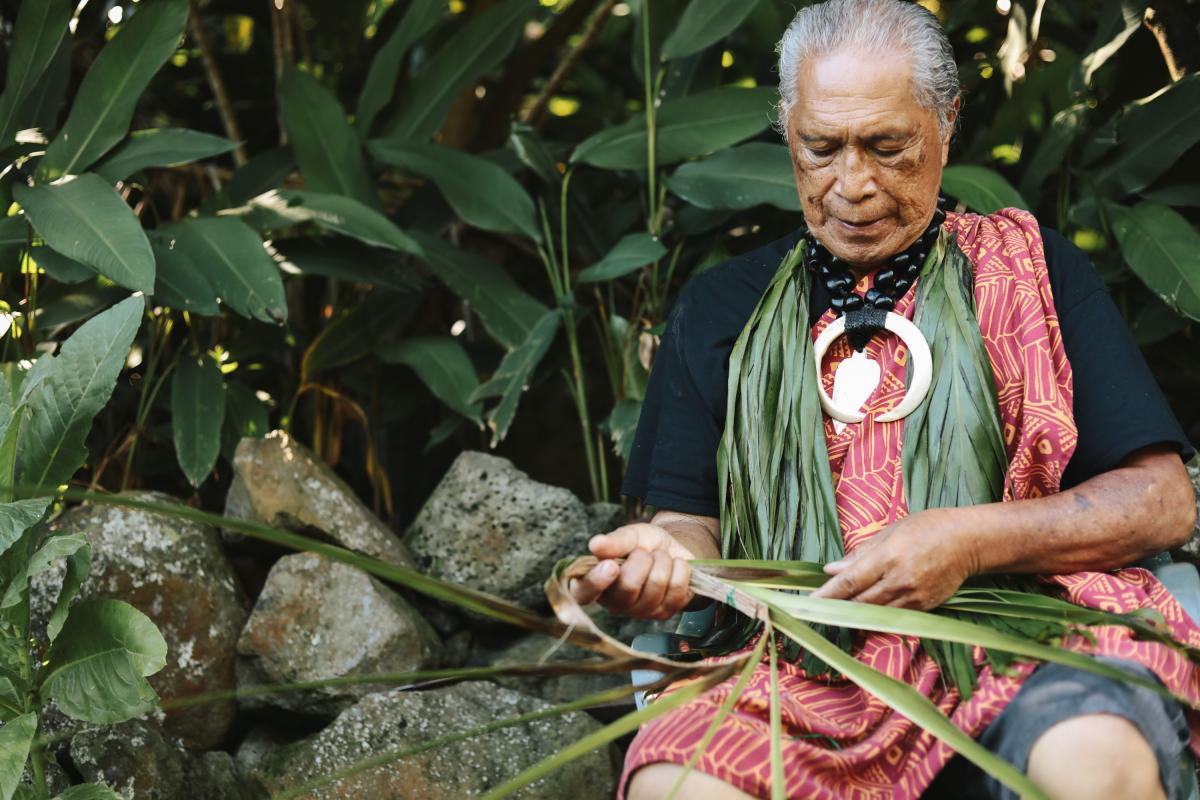
How do you practice sustainability in Molokaʻi?
The way I was taught to practice it, the way with the people in Hālawa Valley did it, is we work with mother nature. We believe there's a spiritual and a physical connection in everything around us. And once we find that spiritual and physical connection within those things, we start to understand, and we see things for more than what they really are. We don't take from mother nature. Because it is not ours to take. We ask and we borrow. We stay pure, we use the gifts that she gives us. It belongs to her, not us.
“We don't take from mother nature. Because it is not ours to take. We ask and we borrow. We stay pure, we use the gifts that she gives us.”
What kind of sacrifices do you make to live this lifestyle?
It's not an easy life. I spend a lot of time away from my family and kids but at the same time, they do come here and spend a lot of time with me. My kids can do everything that I do today. Not too many 13 year olds can go up into the mountain and go harvest a deer and bring it home to feed their family. And they know the modern life enough, where if times have to change and you have to live in the city, they'll be able to survive there. But no matter which way they survive, the culture will still be alive.
Why is it important for culture to be taught by those who practice it?
We say, "Nana i ke kumu," we go to the source. And without these sources – the people within these places who keep these stories alive – everything is gone. But when you have people that were born and raised in that place, seeing what the place used to look like, seeing what the elders used to do, and they hand it down to the next generation and teach them the exact things over and over again, now the story lives on forever.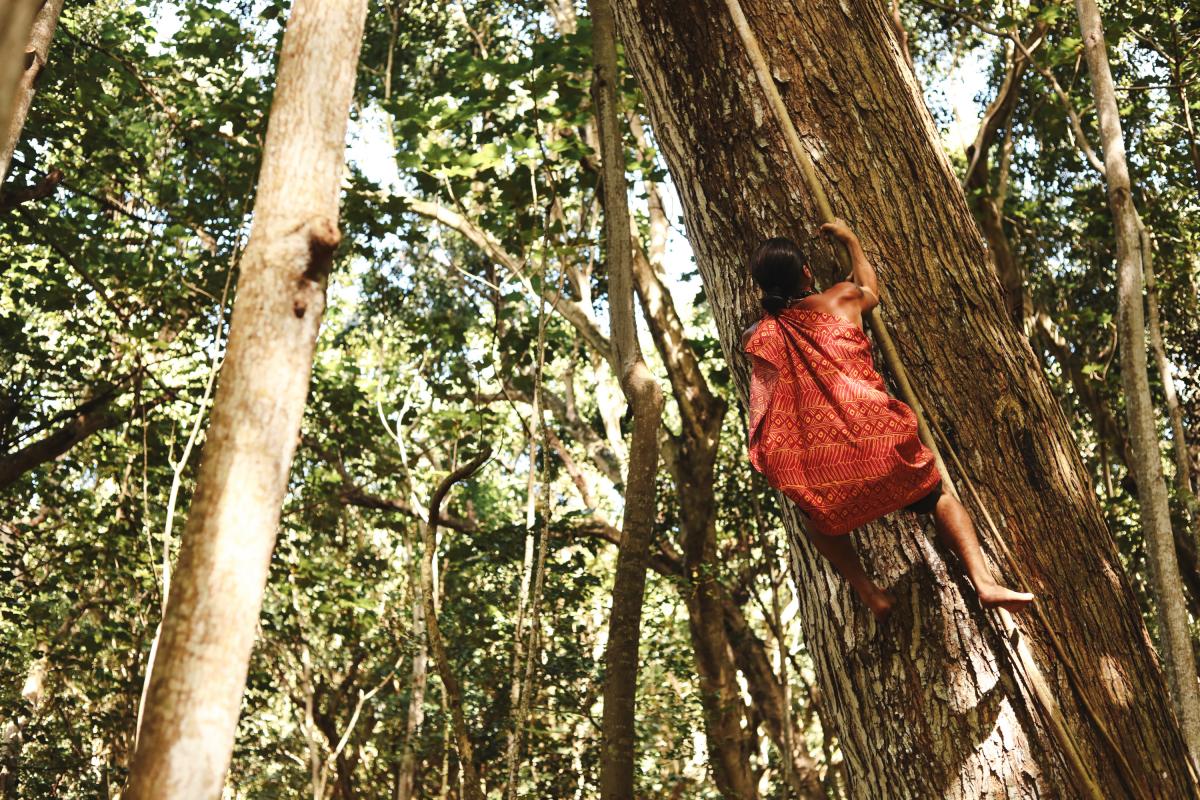
Browse Hawaiʻi Adventures
SpeediShuttle & Arthur's Limousines is the only transportation company offering statewide shared and [...]
Upscale pizzeria restaurant located at the heart of Old Koloa town, pretty good pizza served with aloha [...]
This hidden gem bordering the Wailea Resort is noted for its prime Maui beachfront location on Polo [...]
Hawaii.com is committed to being the Internet's all-inclusive Web site for travel to, from and around [...]
Literally steps from the beach you can enjoy steak, seafood, pasta, sandwiches and an assortment of [...]
One of the world’s premier art museums, the Honolulu Museum of Art presents international caliber [...]
Anaina Hou Community Park is located on 15 acres in Kilauea on the beautiful north shore of Kauaʻi, and [...]
Wheelers Accessible Van Rentals of Hawaii has been providing affordable wheelchair accessible van [...]
Wasabi Tours Hawaii specializes in small group Hawaii volcanoes tour, circle island tour, photo tours, [...]
Relax and enjoy a swim in the lovely pool surrounded by palm trees, or take a five-minute walk to Kailua [...]
Craving an umbrella drink or a delicious meal? Head to Kailua-Kona's largest open-air, oceanfront bar, [...]
Embrace Hawaiian heritage and local culture during your stay at the new all-suites Wailea hotel. Upon [...]

